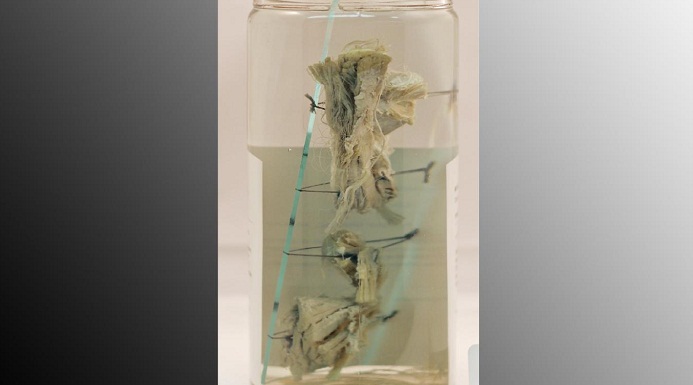Now researchers have discovered the truth and neither of those more fantastical claims were correct.
Using DNA analysis on surviving bits of the meat, the researchers at Yale University came to the conclusion that it was nothing more than a modern-day sea turtle.
"I`m sure people wanted to believe it,” said Jessica Glass, a Yale graduate student and co-lead author of the study.
“They had no idea that many years later a PhD student would come along and figure this out with DNA sequencing techniques.”
The Explorers Club gala, held in the grand ballroom of the Roosevelt Hotel in 1951, promised meat from an extinct giant ground sloth, according to Adalgisa Caccone, a senior research scientist and study co-author.
Some of the folklore about mammoth meat being served is thought to have been borne out of a Christian Science Monitor story that ran days after the event in January 1951.
It reported that the "chief attraction at the smorgasbord was a morsel of 250,000-year-old hairy mammoth meat". The mammoth was said to have been shipped to New York after being discovered at "Woolly Cove" on Akutan Island in the Aleutians.
According to Yale, the banquet`s promoter, Commander Wendell Phillips Dodge sent out press notices saying the annual dinner would feature "prehistoric meat".
In 1951 a piece of meat was sent to Explorers Club member, Paul Griswold Howes, because he was unable to attend the dinner.
The specimen has since remained intact and been on show in two museums. Although it was labeled as "Megatherium," or giant sloth, the myth about the woolly mammoth has remained widely believed.
But in 2014, Ms Glass and another student, Matt Davis, became curious about the specimen. They extracted DNA and the test results matched the genetic profile for green sea turtle.
"We are pleased with the results of Yale`s analysis," said Will Roseman, executive director of the Explorers Club, an organisation of conservationists, environmentalists and others devoted to protecting the earth.
"The mindset 65 years ago and today has dramatically changed and what was obviously a unique event decades ago has given way to a determined effort to introduce people to the foods that can sustain mankind well into the future."
More about:
















































